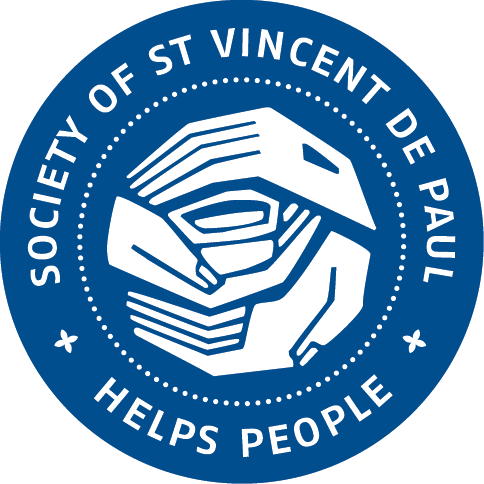Social Work Perspective
As a Social Worker, I see people in difficult situations, every day. There are gaps in our systems and a multitude of complex factors can negatively impact people. SVdP states simply that the Society ‘Helps People’ and as a Social Worker and part of the team at the Welfare Hub, that is what we do. I advocate, navigate systems, catch tears, challenge, listen, and listen some more to build the relationship and trust to support and shape assistance around each person’s needs and aims. Social Work is often behind the scenes, working with those who feel unseen or who society chooses not to see. This is where the joy and the challenge is.
The work is incredibly diverse. People often have trauma (PTSD) from previous experiences which is exacerbated by daily stressors. I am working with those who have their children removed from their care or adjusting when returned to their care, those from refugee or migrant backgrounds developing a new life, those living rough, with mental health challenges, those struggling with addiction or recovery, and many with traumatic backgrounds that impact daily life. It is rewarding when there is change, although it can be a long, and challenging road. The challenges people live with are significant and each person’s story matters.
Backgrounds and situations are diverse, and the need is broadening as we see the elderly and those in employment coming for help. For those with English as a second language, it can be extra hard. Our systems (e.g. health, housing) are process designed, with ‘hard edges’ requiring humans to fit into boxes, and often don’t allow for the multi-faceted complexity people face. This exacerbates mental and emotional stress when people are already at their limit. It can be incredibly disempowering. This is where I can help with smoothing some of those hard edges by walking alongside, assisting, advocating, and navigating systems together. Part of my role is also in relationships with those in other agencies, government, health, or NGOs as this best supports people when I can advocate directly with a professional within that environment. It can feel at times like I am that duck on the pond who looks like I am swimming about calmly but is also behind the scenes furiously paddling under the water, juggling contact with various agencies while also maintaining face-to-face meetings with people.
In the past year, the impact of the housing crisis is very real and impacting all sorts of people. I am currently working with both an elderly couple and students who experienced rent increases that they cannot sustain. Neither group has sought help previously but is now unable to afford food or basic bills.
The social housing waitlist has grown exponentially with no end in sight. People are living with family in overcrowded homes, in Emergency or transitional Housing (hotels, motels, lodges) for longer time periods as there is nowhere for people to go. Work and Income paying for Emergency Housing (hotels) was expanded as part of the COVID-19 response but has continued as the housing ‘boom’ impacts housing supply and costs. There are also those in the ‘gaps’ waiting for Residency or Visa applications to be processed through Immigration NZ. While waiting, they often have legal bills, ongoing costs for medical certificates, and temporary Visas, which are not eligible to work or receive benefits. For couples, that can mean living on one minimal benefit between two, and there is just not enough money. Not knowing what is next destroys any sense of security or future focus for people. This reveals systemic challenges which are not solved quickly, and if I can help with relieving some pressure by offering emotional and psychological support while seeking alternate housing, assisting with applications, advocating for increased entitlements and provision of food and material goods, this goes some way to people feeling supported.
In even the most challenging circumstances, I am always looking for people’s strengths, their resilience and celebrating and encouraging any small successes. The smallest thing can be encouraged, such as someone ‘blocking’ messages from an unsafe ex-partner or achieving by collaborating with other agencies to assist someone in a risky situation to have income or providing furniture when someone moves into a house. When someone gets a part-time job, or texts to say they are safe, or joins a group to broaden social connections, I see all these things as successes. Change only comes with dedicated, committed hard work from the person and those supporting the person and it can take time, determination, and patience.
Thank you to everyone who donates to Vinnies. Every donation to our food bank and every Op Shop purchase counts, as it all goes directly towards the work of helping people. We cannot do the work without this generous support, so thank you.
Tania Martin | Registered Social Worker

